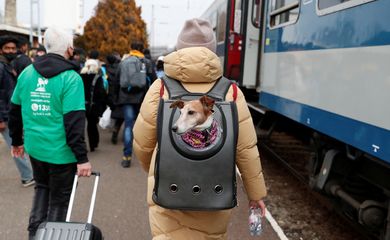Brazil grants 74 visas to Ukrainians in March

Brazil granted 74 visas and 27 humanitarian residence permits to Ukrainians from March 3 to 31 this year. The information was disclosed Monday (Apr. 11) in Brasília and can be found in a report on Ukrainian migration.

“Receiving Ukrainian immigrants and refugees is a humanitarian act. Immigrants are a part of the country’s history and the government is committed to helping those who seek their rights to security, housing, and employment in Brazil,” said Brazil’s Minister of Justice and Public Safety Anderson Torres.
The document also points out that four refugees were recognized in 2022, with 37 refugee proceedings underway. Granting humanitarian visas and residence permits was made possible by a inter-ministerial resolution on the needs of Ukrainians affected by the armed conflict in Ukraine.
Humanitarian visa
A humanitarian visa can be requested abroad and allows entry in Brazil in 180 days. In order to obtain a humanitarian residence permit, applicants must request a National Migratory Registration Card (CRMN in the original Portuguese acronym) with the Brazilian Federal Police in Brazil.
Supported by the International Organization for Migration (IOM) and the International Migration Observatory (OBMigra), the initiative includes guidelines and channels to information on how to apply for humanitarian visas, residence permits, and refugee status in Brazil.
Figures
Between January 2010 and December 2021, more than 3,300 Ukrainians reported as living in Brazil. Almost 2,300 of these were registered in the Southeast, the main destination of Ukrainian immigrants. Poles and Ukrainians make up the largest group of Slavic immigrants in Brazil.
Of those who arrived in the country during this time span, most are men aged 25 through 39. Males make up 83 percent of the Ukrainian immigrant contingent and 46 percent of them are aged 25 through 39.
Women add up to 17 percent and most of them—about ten percent of the total of immigrants—are between 25 and 39 years old. Among men and women there were no immigrants over the age of 65, and only two percent were under the age of 14 at the date of entry into the country.



